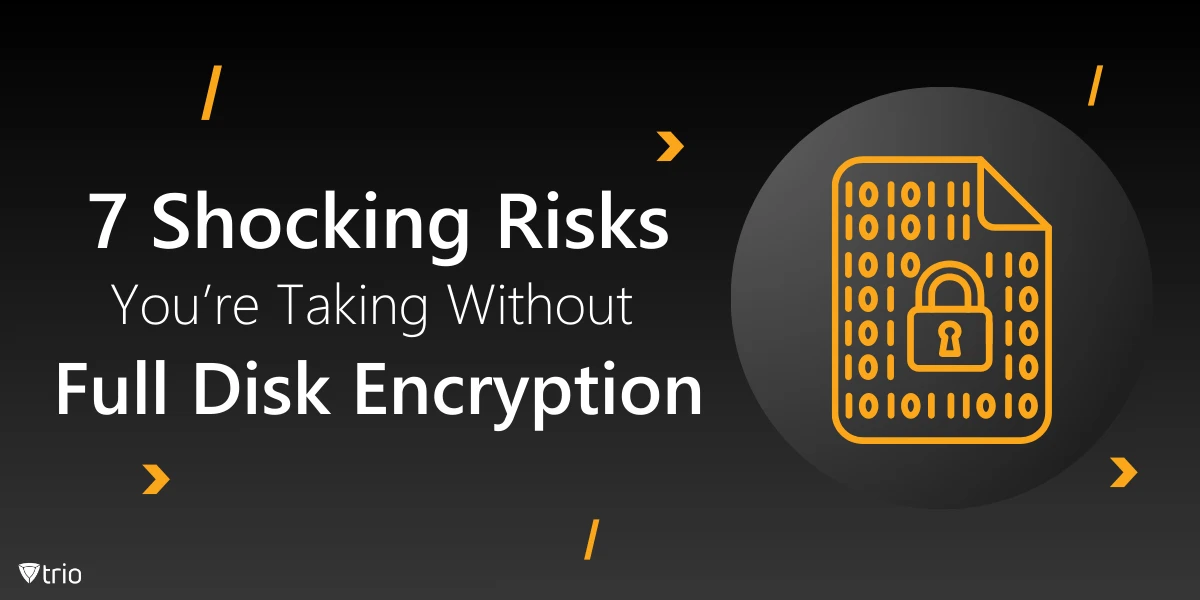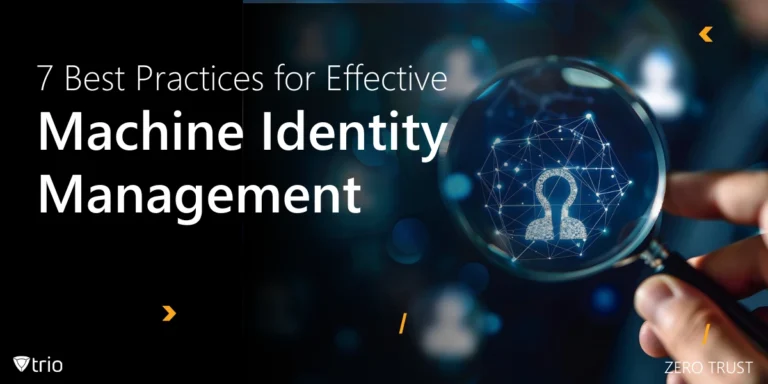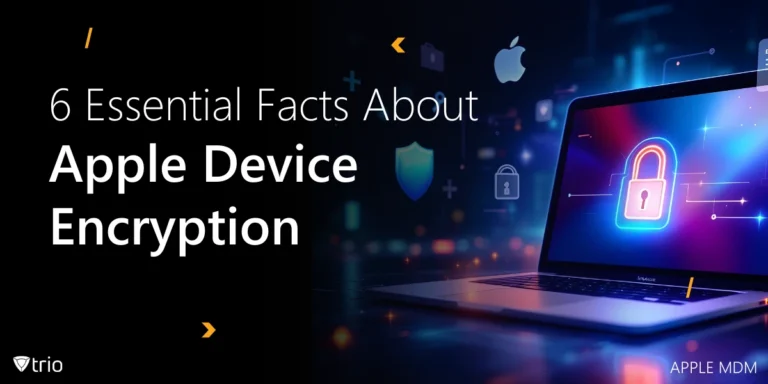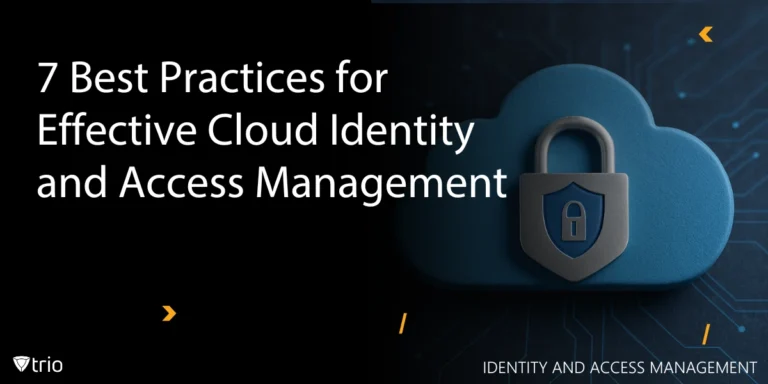In a world where a single click can lead to a major security meltdown, data security isn’t just a priority—it’s your business’s lifeline. Businesses are constantly under threat from data breaches and cyberattacks, putting sensitive information at risk. According to Forbes, the average cost of a data breach in 2024 has surged to $4.88 million.
This is where full disk encryption (FDE), which means locking down all data on a device by converting it into unreadable code, steps in. It’s a crucial part of vulnerability management, protecting your data even if devices are stolen or hacked. Without FDE, the risks businesses face are truly shocking. From financial loss to reputation damage, failing to implement this essential tool could be a costly mistake you can’t afford to make.
What is Full Disk Encryption (FDE)?
Full disk encryption (FDE) is a security measure that encodes all the data on a device, converting it into unreadable code unless the correct authentication is provided. This includes everything from the operating system to personal files. FDE protects data at rest, meaning if a device is lost or stolen, the information remains secure and inaccessible without the encryption key. Popular solutions like BitLocker and FileVault provide FDE by encrypting the entire drive, not just specific files, offering comprehensive protection.
Now, let’s explore the major risks you face without FDE.
Risk 1: Data Breach Exposure
Imagine this: a lost or stolen laptop or mobile device loaded with sensitive company information. Without full disk encryption, all the data stored on that device is up for grabs, potentially exposing your business to serious data breaches. It’s a nightmare scenario that can happen all too easily, especially with the increase in remote and hybrid work models and employees traveling with company devices.
When you use encrypted devices, even if they fall into the wrong hands, the data inside remains locked and unreadable. It’s like having a digital vault protecting your most valuable information.
The solution is simple: implement full disk encryption across all company devices. This ensures that if a device is ever lost or stolen, your data remains secure and completely inaccessible to unauthorized users.

Risk 2: Legal and Compliance Violations
Failing to prioritize data security with full disk encryption doesn’t just leave your business exposed to hackers—it can also lead to costly legal troubles. Many industries, especially those handling sensitive personal data, are required by law to implement proper encryption methods to follow different types of compliance. Without FDE, you risk violating regulations like GDPR or HIPAA, which could result in hefty fines or penalties. Not complying with these laws could damage your reputation and cost your business a lot more than just lost data.
Invest in full disk encryption products that are designed to meet industry standards and legal requirements. Don’t forget to store and manage your recovery keys securely—losing them could mean losing access to your data entirely, which could also violate legal frameworks. Stay compliant, avoid penalties, and protect your business.
Risk 3: Internal Data Leaks
It’s not just outsiders you need to worry about—internal data leaks can happen too. Whether it’s a disgruntled employee or someone accidentally mishandling information, unsecured devices can leave your business vulnerable. Without encrypted devices, sensitive data can easily be exposed, and the consequences can be just as severe as external breaches.
Make sure all devices are secured with strong encryption algorithms. This way, only authorized users have access to decrypting data, reducing the risk of internal leaks. By implementing solid device encryption, you keep sensitive information safely locked away from potential misuse.
Risk 4: Vulnerability to Cyber Attacks
Cybercriminals thrive on unencrypted devices, and without full disk encryption, you’re leaving the door wide open for attacks. Malware, ransomware, and phishing schemes can easily target unprotected devices, giving hackers a clear path to your sensitive data. It’s not just an inconvenience—it’s a real threat to your business’s security and reputation.
Start by installing full drive encryption software on all company devices to lock down sensitive information. Don’t forget Android devices—implement encryption for Android systems to cover all bases. By securing your devices with a solid encryption process, you can reduce the risk of cyberattacks significantly.

Risk 5: Loss of Business Reputation
A data breach can do more than just expose sensitive information—it can destroy your business’s reputation. Customers trust you to protect data, especially when it involves personal or user data. One breach, and that trust can vanish, leading to long-term damage that’s hard to recover from.
By encrypting file systems and securing all data stored on devices, you can ensure customer information stays safe. Taking these steps will help you maintain trust and avoid the costly fallout that comes from a damaged reputation.
Risk 6: Financial Losses
When full disk encryption is overlooked, the financial consequences can be staggering. Beyond the immediate costs of fines and legal fees, there’s the hidden toll—lost business, expensive disaster recovery efforts, and a tarnished reputation. A data breach can force businesses to pour money into rebuilding systems, compensating clients, and restoring trust.
Implement full disk encryption across every device to safeguard business data from costly breaches. Regularly check and detect encryption types to ensure all systems are properly secured. An encrypted drive protects your finances just as much as it does your data.
Risk 7: Difficulty in Device Management
Managing security for a large fleet of laptops and mobile devices without full disk encryption (FDE) can become a logistical nightmare. As the number of devices grows, so do the risks. Every unsecured device is a potential gateway for a breach, especially in a bring-your-own-device (BYOD) environment or with remote workers.
Moreover, without proper encryption, device management becomes complicated—tracking security compliance and enforcing policies across multiple platforms can be incredibly time-consuming. This risk escalates significantly when managing mobile devices that lack Android system encryption or similar encryption technologies, as sensitive data could be exposed if the devices are lost or stolen.
The solution? Implement system encryption for mobile devices and add pre-boot authentication to secure your data before the device even starts up. Pre-boot authentication ensures that only authorized users can access the system, adding an extra layer of protection against unauthorized access.
Additionally, for streamlined security management, leverage Mobile Device Management (MDM) solutions like Trio, which allow you to remotely enforce security policies, deploy updates, and monitor encryption statuses. To see the full benefits, try a free demo of Trio and take control of your device security today.
Conclusion: Secure Your Business Before It’s Too Late
Full disk encryption is a vital safeguard against costly data breaches that can compromise sensitive information and damage your business’s reputation. By implementing FDE, you’re taking a proactive step to protect your data and ensure long-term success. Don’t wait for a breach to force your hand—take action now. Assess your current security measures, and if FDE isn’t already in place, make it a priority today to protect what matters most.
Get Ahead of the Curve
Every organization today needs a solution to automate time-consuming tasks and strengthen security.
Without the right tools, manual processes drain resources and leave gaps in protection. Trio MDM is designed to solve this problem, automating key tasks, boosting security, and ensuring compliance with ease.
Don't let inefficiencies hold you back. Learn how Trio MDM can revolutionize your IT operations or request a free trial today!





